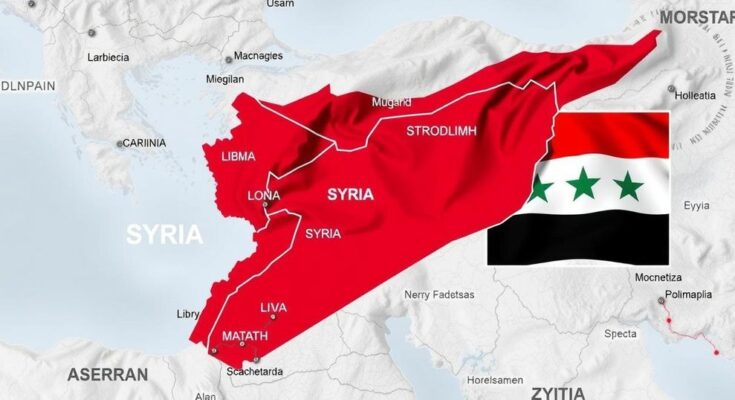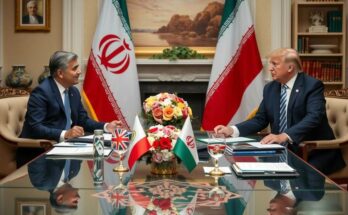The ousting of Bashar al-Assad in Syria has prompted Russia to shift military assets to Libya, boosting Khalifa Haftar’s position as a key ally. Increased naval activity and growing ties between the Assad regime and Haftar’s forces reflect a significant rearrangement of regional power dynamics, raising concerns for Western policymakers about Russia’s growing influence in North Africa.
The recent ousting of Bashar al-Assad in Syria has prompted a notable shift in geopolitical dynamics, particularly for Russia, which is turning its attention towards Libya. Following the news of Assad’s fall, reports emerged of Syrian officials fleeing to eastern Libya, particularly to Benghazi, thereby enhancing the connections between the two nations in a time of turmoil. Furthermore, as Russia vacates its military installations in Syria, it has begun relocating its military assets to Libya, significantly increasing its naval presence in the Mediterranean region.
Kremlin officials have acknowledged ongoing communication with the Syrian rebels, indicating a need for Russia to reassess its strategic position within Syria in light of the recent developments. The situation has intensified a long-standing concern among Western nations over Russia’s ambitions in Libya, especially as a fortified Khalifa Haftar, the commander of the Libyan National Army, may become a more significant ally for Moscow amid the civil unrest.
In particular, greater maritime traffic between Syria and Libya has been observed, raising concerns regarding Russia’s interests in gaining naval access to Libya’s crucial eastern ports. This turn of events has positioned Libya as a strategic foothold for Russia in Africa, especially as the country benefits from its historical ties with authoritarian regimes like that of Assad’s.
Haftar has proven to be adept at navigating shifting allegiances, previously dubbed as “America’s man” but now showcasing characteristics aligning with Russian interests. Notably, familial bonds play a central role in his consolidation of power, mirroring tactics seen within the Assad regime. Furthermore, illicit networks between both regimes, including drug trafficking operations, have established a foundation of mutual support. Despite the knowledge of such ties, Western policymakers continue to engage with Haftar, believing they can sway him towards their interests.
Interestingly, while Turkey supports the opposing Libyan factions, the complexity of foreign involvement in the region has resulted in a precarious balance of power, with Russia and Turkey engaged in a form of competitive collaboration. This mutual understanding has fostered continued military exchanges and economic arrangements, more so as the implications of Assad’s downfall ripple across the Mediterranean.
As these geopolitical shifts unfold, analysts remain cautious about future developments in Libya and beyond. The redistribution of Russian military assets signifies not only immediate strategic interests but may also lead to increased tensions in neighboring volatile regions, further complicating the landscape of ongoing conflicts across North Africa and the Sahel.
In light of the geopolitical developments stemming from Syria’s civil war, the recent removal of Bashar al-Assad has instigated immediate repercussions, notably impacting Russia’s military strategies in Libya. Russia has been significantly involved in supporting Assad’s regime, which has allowed them to establish a critical naval base in Tartus, Syria. However, with Assad’s ouster, Moscow is recalibrating its position, seeking to reinforce alliances with figures like Khalifa Haftar in Libya who hold substantial sway over eastern coastal regions vital for maritime access.
The changing circumstances in Syria, particularly the fall of Bashar al-Assad, have reverberated throughout the Mediterranean, notably influencing the strategic calculations of Russia with respect to Libya. As Russia shifts its military focus to Libya and bolsters relationships with local strongmen like Khalifa Haftar, the situation portends significant implications for regional stability and international relations. Policymakers must remain vigilant as this geopolitical chess game evolves, especially in light of the potential for increased conflict in adjacent regions due to Russian arms and support flowing into Libya.
Original Source: www.france24.com




